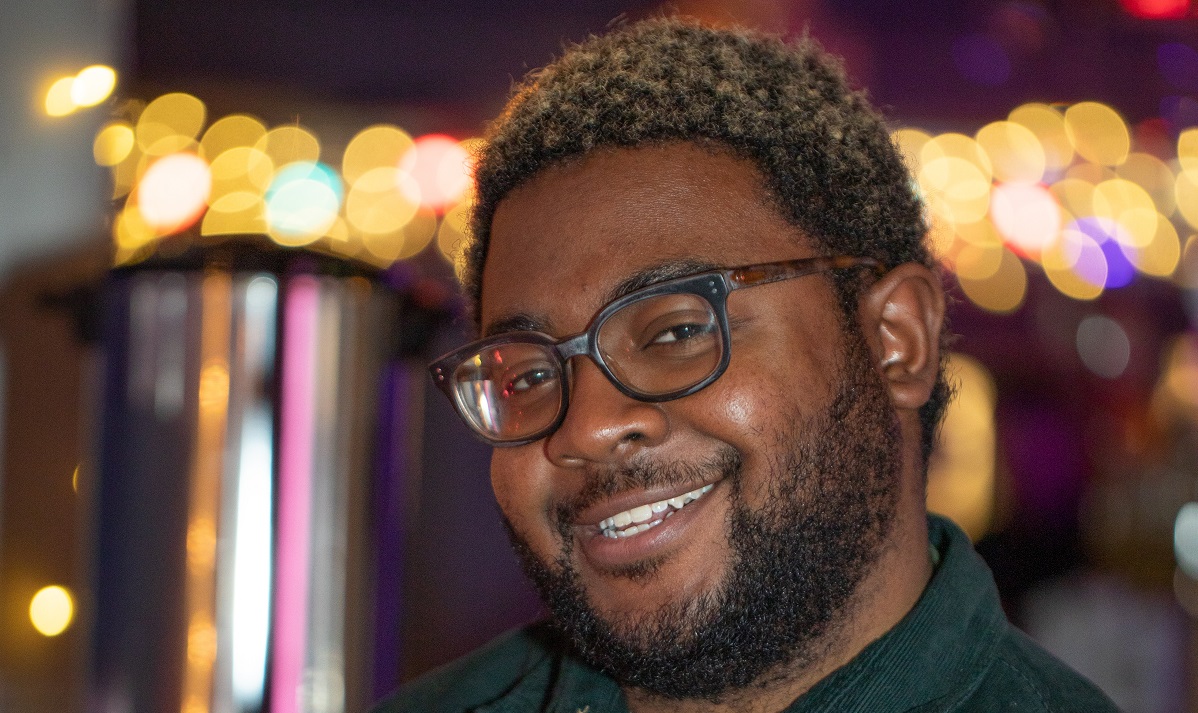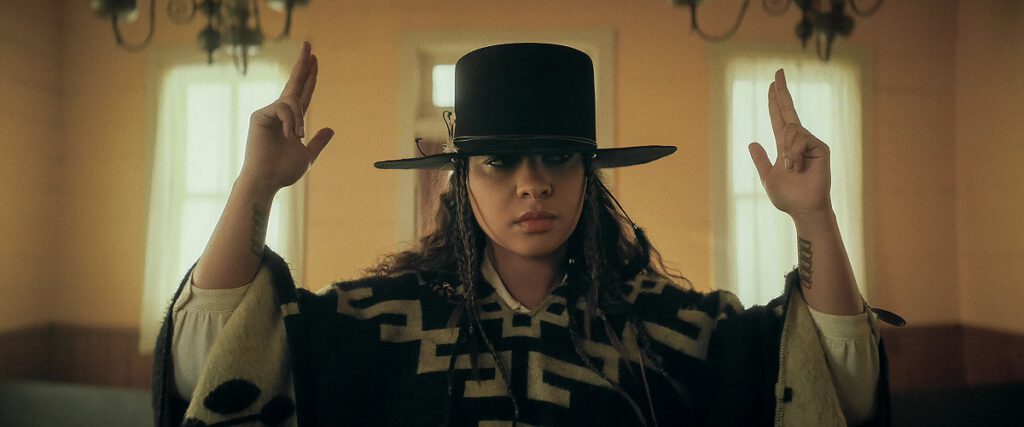It is hard to believe it has been five years since “Blindspotting” premiered during 2018’s Sundance Film Festival. It’s even harder to believe that such an indie would also get a television adaptation spin-off. Lo and behold, “Blindspotting: The Series” slapped with irresistible rhythm and a fresh lens. The series version creatively shifted its focus from the duo of Collin (Daveed Diggs) and Miles (Rafael Casal) to Miles’ partner Ashley (Jasmine Cephas Jones) and her navigation of motherhood and life while Miles is incarcerated.
The series captures the same bold spirit and urbanized beat as the source while giving Jasmine Cephas Jones the ground floor to strut her power. As Jones stands her ground in the spotlight, it presents a new conversation about modern Black culture and the criminal justice system’s effect on inmates and their families. a.
Nine months after she and Miles both said “I do” behind glass walls, Ashley struggles to find control adjusting to the new norm, feeling the crushing weight of Miles’ absence further. Balancing raising her seven-year-old Sean (Atticus Woodward), working at a hotel, being a loyal wife to Miles, and a supportive family member to easygoing mother-in-law Rainey (Helen Hunt) and aggressive yet confident sister-in-law Trish (Jaylen Barron), Ash’s cracks start to show. She wears a newfound chip on her shoulder, acting more intensely than usual in light situations. Rainey describes her as “not fun” in the inaugural episode. In a later episode, Trish calls her “depressed.” Ash tries to find a way to pursue a semblance of joy under pressure. Her distance from Miles isn’t as wide as before. Now she and her family are granted 48-hour visitation access with Miles once every three months. This adds a wedge between Rainey, who wants visitation privileges with her son, and Ash, who actively shuts her down whenever the conversation is brought up.

Amidst Ash’s conflicts, the people in her orbit are in new conflicting stages in their lives. Trish starts recognizing her romantic feelings towards her best friend Jacque (April Absynth), who is deep into a committed relationship with banker boyfriend Cuddie (Lance Cameron Holloway). Ash’s best friend Janelle (Candace Nicholas-Lippman) grapples with her loneliness as her experience with an ex-fiancé returns to haunt her.
A friend of named Earl, (Benjamin Earl Turner), who was last seen thrown back into prison over breaking house arrest probation, is released. He finds himself pursuing a cooking business along with a newfound romance with a high school friend. He attends group therapy for former inmates to help treat his lingering PTSD from incarceration. Out of the supporting characters, he is given more of an expansive role this season due to the season’s central themes mostly focusing on the prison system and the ramifications it has on former inmates’ mental health.
“Blindspotting” season two continues its winning streak of supplying bold social commentary through sharp humor and surrealist imagination. It retains the source material’s brilliant blend of expressionism and absurdist humor, which can rattle your soul in either chills or well-earned gut-busting laughs. Its signature multiple performance art form inclusion for each episode rarely comes across as stale or gimmicky. Most sequences that signify the rush of emotions the characters experience or elaborate on a central social topic it boldly tackles are bone-chilling. The writers and episode directors—notably Rafael Casal and Jessica Wu Calder—find fresh ways to make each spoken word, interpretive dance, and movement performance sequence symbolic and mesmerizing. The amount of effort added into each sequence’s dance choreography is all done wonderfully, giving Starz’s other dance-centric series, “Step Up High Water,” a run for its money.
A coat of freshness is added by interweaving Sean’s perspective of Mile’s absence into the mix in imaginative sequences and episodes. He’s less used as a plot device but as a visionary tool to further the show’s imaginative identity. They take his childlike innocence into account and focus on how he perceives the situations surrounding him. In the opening episode, Sean is given a teddy bear lion as a birthday gift from Miles, as a form of protection. When the lens is centered on Sean, that lion comes to life in a manner like Spike Jonze’s “Where the Wild Things Are.” A highlight episode in the season’s second half, “The Good, The Bad, And the Thizzly,” delves into Sean’s imagination, taking a complete spaghetti western style to depict how this kid perceives his daddy’s incarceration and the criminal justice system.

Against the backdrop of the show’s poetic visual motifs, the series keeps its humanistic traits, exploring the complexities of its cast while never losing sight of its rich characters who make this hyper-surrealist portrayal of the Bay area come alive. Jasmine Cephas Jones effortlessly carries the series with her unbridled power, depicting fierce energy and empathy throughout.
Likely due to the lower episode count, the season sacrifices the presence of supporting characters like Rainey, Janelle, and Trish, who all have less stuff to do. Trish, especially, is a burst of intimidating diva power that is now limited to a long-winded crush subplot. On the upside, Rafael Casal’s Miles has a larger role appearing in a good chunk of the episodes as the waters of his and Ashley’s dynamic are tested. When the focus is on them, the series shares the same air as the first season, furthering the dimension of the new characters trying to get their lives together in the ordeal.
To further highlight the season, I can’t fail to mention the boldest episode, “N*ggaz and Jesus.” The extensive near-40-minute episode, penned by the film’s writers Daveed Diggs and Rafael Casal, follows Miles and Ashley in their first 48-hour visit. The newlyweds are excited to finally get their 69-ing in their 48 hours together until Sean says the “n-word” in front of them. Sean, coming from both white and Black backgrounds, has Miles and Ashley joining a thorough conversation about racism and the word’s history. It’s a strong educational portrait of the n-word’s history and involvement with race which I haven’t seen discussed in this magnitude since the early 2000s UPN sitcom series “All of Us,” which did an entire episode called “The N-Word” about it. Here, they deconstruct the facets of the n-word while incorporating a breathtaking interpretive dance sequence exploring the timeline of slavery and systematic racism.
The second season of “Blindspotting” cements it as one of the best and boldest shows on television. Its poetic artfulness and witty approach to under-discussed social topics about the effects of the criminal justice system and Black culture are handled uniquely and thoughtfully, unlike any diverse show today. This series deserves to be seen by all.
Whole season was screened for review.












